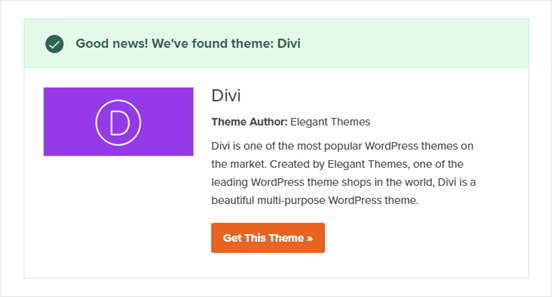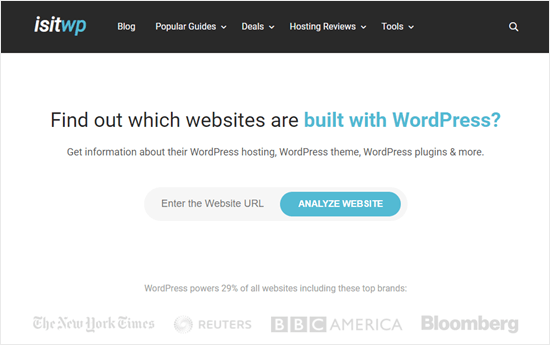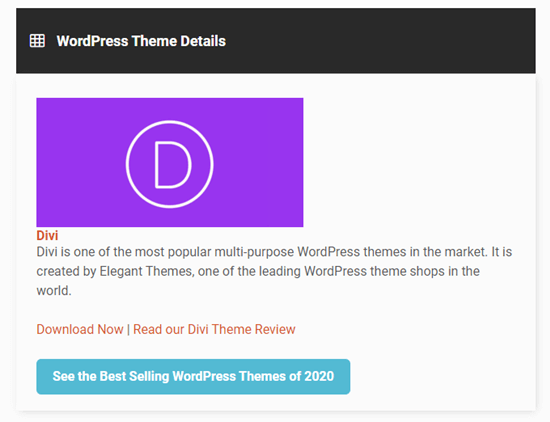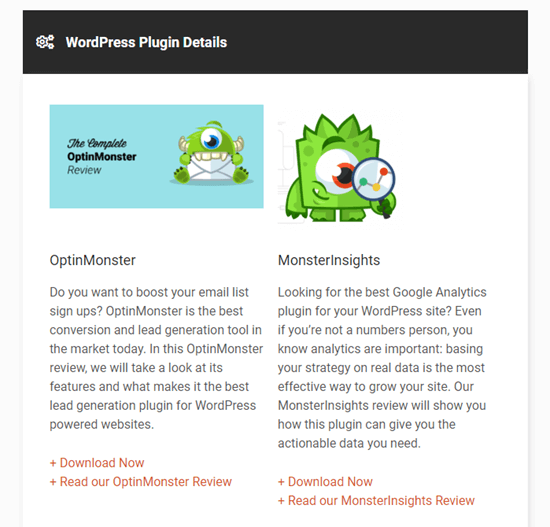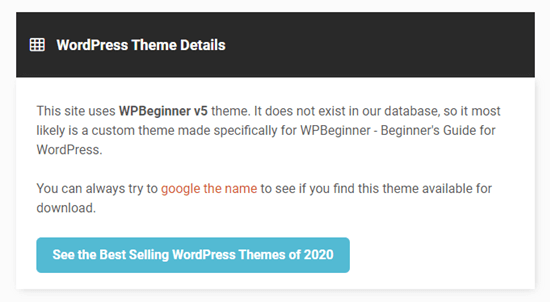Are you looking for the best WordPress blogs to follow, so you can get fresh WordPress tutorials, news, and latest community updates?
WordPress is the most popular content management system (CMS) in the world and powers over 43% of sites on the internet. Following different WordPress blogs can help you learn how to better use WordPress, get website growth tips, stay up to date with WordPress updates, and receive latest community news.
In this article, we will share the list of some of the best WordPress blogs that you should follow. We’re following these WordPress blogs in our own RSS reader.

Why Should You Follow WordPress Blogs?
If you have a WordPress website or plan to create one, then you definitely want to follow top WordPress blogs.
You can get in-depth knowledge about WordPress and how it works. Plus, you get to see step-by-step tutorials on how to get started. Aside from that, they also have tips on choosing the best WordPress hosting services, themes, and plugins to operate your site.
Many WordPress blogs will also share tips and tricks to optimize your website for search engines, make it load faster, strengthen your website security, make money online, and more.
That being said, let’s look at some of the best WordPress blogs you should read and follow. We’ve broken down the list of blogs into different sections, so you can jump ahead by clicking the links below:
Top WordPress Blogs to Follow
If you are looking for blogs that help you learn about WordPress, then here are our top picks. Each of them covers detailed tutorials, plugin reviews, comparison posts, guides, the latest WordPress news, and more.
1. WPBeginner

WPBeginner is the largest free WordPress resource site for beginners. Our goal is to provide helpful tutorials on WordPress for small business owners, bloggers, and non-techy WordPress users.
WPBeginner was launched in 2009 by founder Syed Balkhi. Since then, it has become one of the best WordPress blogs in the world. There are over 320,000 subscribers from across 190 countries.
You can find a variety of topics on WPBeignner. There are WordPress beginner guides, showcases, step-by-step tutorials, articles on themes and plugins, comparison posts, and the latest news about WordPress.
To help you get started with WordPress, here are some helpful tutorials on WPBeginner:
- How to start a WordPress blog
- How to create an online store
- How to make a WordPress website
- How to choose the best WordPress hosting
- Ultimate guide to WordPress SEO for beginners
- The ultimate guide to boost WordPress speed and performance
You can visit the WPBeginner blog section to find more helpful content on WordPress.
Besides that, you can also join the free WPBeginner Facebook group and connect with a large community of WordPress users and experts (over 90,000 members). It is an excellent place for beginners and non-tech users to get help and support about WordPress, plugin suggestions, learn tips and tricks, and more.
If you like video content, then you can subscribe to WPBeginner’s YouTube channel. There are detailed videos on WordPress that will guide you every step of the way.
2. IsItWP

IsItWP is another free online resource that offers WordPress tutorials, product reviews, guides, how-to articles, and showcases. It is a great place to get started with WordPress and learn about different things.
You can learn about creating a WordPress blog, online store, membership site, and more. Plus, you’ll get to know about WordPress security, performance, email marketing, lead generation, plugins, and themes. It also offers detailed guides on marketing hacks, like 30 ways to make money online blogging.
The best part about using IsItWP is that you get to use multiple free tools. Some tools include a domain name generator, WordPress speed test, website uptime checker, headline analyzer, and more.
3. Blog Tyrant

Blog Tyrant is the next WordPress blog on our list. If you’re looking to start a WordPress blog and learn strategies to grow your business, this is the right website for you to follow.
Blog Tyrant was started in 2010 to help bloggers make a living online. It covers extensive guides, how-to tutorials, product reviews, and other resources to help you create a successful blog and make money online.
The website also lists valuable tools for blogging and helps pick the right plugins for your website.
For instance, you can use tools like a password generator to secure your website, a security scanner to check for vulnerabilities, or a site speed test to see how fast your website loads.
4. WP Tavern

WP Tavern is another famous WordPress blog that covers the latest news and events about WordPress. You can follow the blog to learn about new WordPress releases, and industry news.
It also covers the latest news about different WordPress plugins and themes. You can learn about product acquisitions, feature releases in themes, and new features coming in WordPress, and more.
5. WPForms

WPForms is the best WordPress form builder plugin in the market used by over 5 million websites.
With the WPForms blog, you can learn how to create all types of forms for your WordPress site. From simple contact forms to complex multistep forms, the WPForms blog has detailed guides and tutorials to help you out.
Plus, you get to stay informed about the latest updates and releases in the plugin. Other than that, you’ll find more helpful blog posts, how-to guides, and showcases on WordPress. For example, there are step-by-step tutorials like how to create an NPS survey form in WordPress or thought-leadership pieces like 7 benefits of conversational marketing.
6. Elegant Themes

Elegant Themes offers a high-quality premium WordPress theme collection. It is also the company behind Divi, a popular WordPress theme and page builder.
The Elegant Themes blog offers a lot of content focused on using Divi. For instance, you can learn how to use the website builder, use its features, and customize your site.
Aside from content on Divi, Elegant Themes also publishes general content about WordPress. There are WordPress tutorials, plugin suggestions, reviews, comparisons, and other marketing guides. For example, you can read articles like how to customize your WordPress header.
7. CodeinWP

CodeinWP is the next WordPress blog on our list. It covers extensive topics about WordPress and offers tutorials, lists, comparison posts, and other detailed guides.
What makes CodeinWP different is that it offers various resources and tools besides blog posts and guides. For instance, there are free code snippets you can use to customize your WordPress site.
They also offers free illustrations from designers that you can use for your site among other helpful resources.
8. OptinMonster

OptinMonster is the best WordPress popup and lead generation software. It helps you grow your email list, get more leads, increase sales, and optimize your site for conversions.
With the OptinMonster blog, you can learn how to use the plugin and get the most out of it. There are detailed tutorials on setting up different marketing campaigns, configuring targeting rules to show popups at the right place and time, and more.
Besides that, you can get knowledge about content marketing, email marketing, and lead generation in WordPress by following the blog.
What makes OptinMonster blog different is its case studies. You can learn how other companies are using the plugin to get more email subscribers, which display rules they’re using to target new audiences, how they’re converting traffic into leads, and more.
9. Post Status

Post Status is a membership community for people looking to work and grow in the WordPress ecosystem. It offers premium memberships and access to different content about WordPress.
You can get the latest news about WordPress, learn about new plugin features and acquisitions, and read blogs about different Post Status members. For example, there are blog posts called Membership Spotlight, where you get to know about Post Status members, their experience in working in WordPress, and more.
It is also an excellent resource for anyone who wants to connect with founders of WordPress plugins, developers, and other WordPress enthusiasts. There are plans for individuals, agency owners, product founders, and partners.
With Post Status premium memberships, you get important WordPress news and events in the weekly newsletter, access to the Slack community, members-only content, and a weekly members hurdle.
The website also has a podcast and videos to get insights about WordPress. As a partner, you can also post WordPress job openings for your company on the Post Status website.
10. Torque Magazine

Torque Magazine is another top WordPress blog you should follow. It is a publication by WP Engine but maintains complete editorial independence.
The website covers extensive articles on WordPress. It has divided its content into different categories: development, tools, business, community, videos, and ebooks.
For example, you can find useful guides like CSS best practices and troubleshooting WordPress issues under the development section. You’ll also find interviews with industry experts, step-by-step tutorials, plugin suggestions, marketing and SEO tips and tricks, and more in Torque Magazine.
Best WordPress Plugin Blogs
There are many WordPress plugins that have a great blog section. They cover extensive topics on WordPress and share useful tips and resources.
You can follow these blogs to get more information about WordPress and learn how to use a specific plugin.
- MonsterInsights Blog – MonsterInsights is a popular WordPress analytics plugin used by over 3 million websites. Their blog contains helpful marketing tips like how to setup website tracking, and make data-driven decisions to grow your business.
- All in One SEO Blog – AIOSEO is the best WordPress SEO plugin used by over 3 million websites. Their blog covers SEO tips and WordPress tutorials to help you improve your SEO rankings.
- WooCommerce Blog – WooCommerce is a popular eCommerce plugin for WordPress. Their blog covers eCommerce tutorials to help boost your online sales.
- Yoast SEO Blog – Yoast SEO is a popular WordPress SEO plugin. They also have a blog focused on SEO optimization tips to help you boost your SEO rankings.
- Smash Balloon Blog – Smash Balloon is a leading WordPress social media plugin used by over 1.4 million websites. Their blog has tips on how to improve your social media engagement.
- PushEngage Blog – PushEngage is the best web push notification software to help you boost your traffic. Their blog has tips on how to grow your traffic, conversions, and user engagement.
- Easy Digital Downloads Blog – EDD is the best plugin for selling digital downloads in WordPress. Their blog covers tips for online creators to help you increase your sales & revenue.
- SeedProd Blog – SeedProd is a popular page builder for WordPress. Their blog covers tips on how to improve your website design and tips to improve your website customization workflow.
- AffiliateWP Blog – AffiliateWP is the best WordPress affiliate plugin for WordPress and WooCommerce. Their blog covers tips on how to create and grow your affiliate program.
- WP Simple Pay Blog – WP Simple Pay is a leading payments plugin for WordPress. Their blog cover tips on securely accepting payments as well as other WordPress tutorials.
- RafflePress Blog – RafflePress is the best WordPress giveaway plugin. Their blog cover tips on how to unlock viral traffic growth for your website to get more traffic, subscribers, and sales.
- ThriveThemes Blog – ThriveThemes is a popular conversion optimization suite for WordPress. Their blog covers marketing tutorials and tips to improve your converisions.
- WP Mail SMTP Blog – WP Mail SMTP is one of the must have plugins for WordPress used by over 3 million websites. Their blog covers tips on how to improve your email deliverability along with other WordPress tutorials.
- WPMU Dev Blog – WPMU Dev offers a suite of WordPress plugins and tools. Their blog covers a vast number of topics from how-to posts, product reviews, news, and more.
Blogs by WordPress Founders and Influencers
You can also learn a lot about WordPress from different founders and influencers. You get to read about their journey, experiences, and how they’re growing their business in the WordPress space.
- Syed Balkhi – Syed Balkhi is the founder of WPBeginner and a well-known entrepreneur. His blog shares tips on his entrepreneurship journey.
- Matt Mullenweg – Matt Mullenweg is the co-founder of WordPress. His blog is always full of his latest experiences and entrepreneurship journey.
- Chris Lema – Chris Lema is a well-known speaker and blogger who writes about various topics from communication, eCommerce, LMS, and more.
- Tom McFarlin – Tom McFarlin is a WordPress developer who loves writing, building, and sharing WordPress-based projects. You can follow his blog to learn about WordPress, PHP, databases, and other backend technology.
- Joost de Valk – Jost is the founder of Yoast and now serves as the head of WordPress strategy for Newfold Digital (parent company of Bluehost).
Popular Marketing and SEO Blogs to Follow
There are other great resources out there that help not only help you learn about WordPress but also allow you to grow your website.
You can learn tips on growing your traffic, boosting search engine rankings, uncovering different marketing techniques, and more from marketing and SEO blogs. These blogs also cover WordPress’s latest news and guides, which is really useful.
- Neil Patel Blog – Neil Patel is a top SEO influencer who regularly creates detailed SEO tutorials, guides, case studies, and more to help you learn SEO.
- Search Engine Roundtable – Search Engine Roundtable is the go-to WordPress blog for staying up to date with SEO news, Google algorithm changes, and more.
- Search Engine Journal – Search Engine Journal is another popular SEO blog although their coverage on WordPress topics are generally extremely biased and misinformed. We only recommend following their SEO tips but for WordPress related news, you should avoid them.
- Digital Marketer – Digital Marketer provides marketing tutorials, guides, and best practices on how to grow your online traffic and sales.
- ShoutMeLoud – ShoutMeLoud is a blog created by Harsh Agrawal. He’s a well-known blogger who shares his blogging journey, WordPress tips, and more to help you grow your online presence.
- Blogging Wizard – Blogging Wizard is a popular resource that you can use to learn proven strategies for growing your WordPress blog.
- Ahrefs Blog – Ahrefs is a popular SEO tool. Their blog is full of useful guides to improve your website’s SEO ranking.
Which is the Best WordPress Blog to Follow?
The best WordPress blogs to follow are WPBeginner, IsItWP, Blog Tyrant, and WP Tavern.
After being in the WordPress industry for the last 16+ years, we recommend you follow multiple WordPress blogs. Each of the top 10 blogs listed in our post will help you expand your knowledge about WordPress and pick up new ways to grow your business.
The easiest way to follow these WordPress blogs is by either adding them to your RSS feed reader or joining their free email newsletter.
We hope this article helped you pick the best WordPress blog to follow. You may also want to see our guide on how to create your email newsletter, and our expert pick of the best WordPress plugins for all websites.
If you liked this article, then please subscribe to our YouTube Channel for WordPress video tutorials. You can also find us on Twitter and Facebook.
The post 36 Best WordPress Blogs You Should Read & Follow (in 2023) first appeared on WPBeginner.




















































